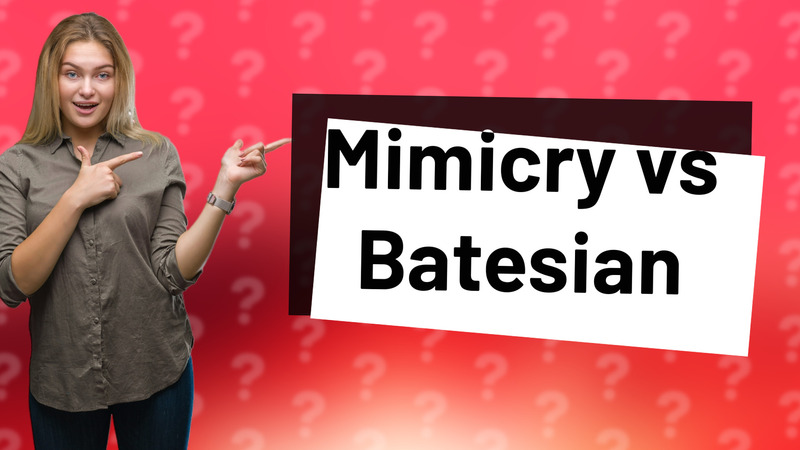
Explore the incredible mimicry of the mimic octopus, imitating over 15 species for survival.

Discover how animals like the mimic octopus and viceroy butterfly use mimicry for survival.

Discover the mimic octopus, nature's master of disguise, impersonating marine animals for survival.

Discover how the mimic octopus uses Batesian mimicry to survive by imitating dangerous sea creatures.

Explore the key differences between mimicry and camouflage, two vital survival strategies in the animal kingdom.

Explore the common nature of mimicry as a survival strategy among various species in ecosystems.

Explore the concept of Batesian mimicry and discover why it is not toxic, yet plays a crucial role in predator-prey interactions.

Learn the key differences between mimicry and Batesian mimicry in nature, including examples of species that use these strategies.

Explore the two types of mimicry: Batesian and Müllerian, and how they help species deter predators.

Learn about Batesian, Müllerian, and aggressive mimicry and how these strategies help organisms survive.

Discover how mimicry in frogs helps them survive by imitating dangerous species to deter predators.

Discover how the Viceroy butterfly uses mimicry to survive in the rainforest by imitating the toxic Monarch butterfly.

Explore Mullerian and Batesian mimicry with clear examples of butterflies and snakes in this informative video.

Explore the crucial distinctions between Batesian and Müllerian mimicry in the animal kingdom and their survival benefits.

Discover Müllerian mimicry, the opposite of Batesian mimicry, where harmful species benefit by resembling each other.